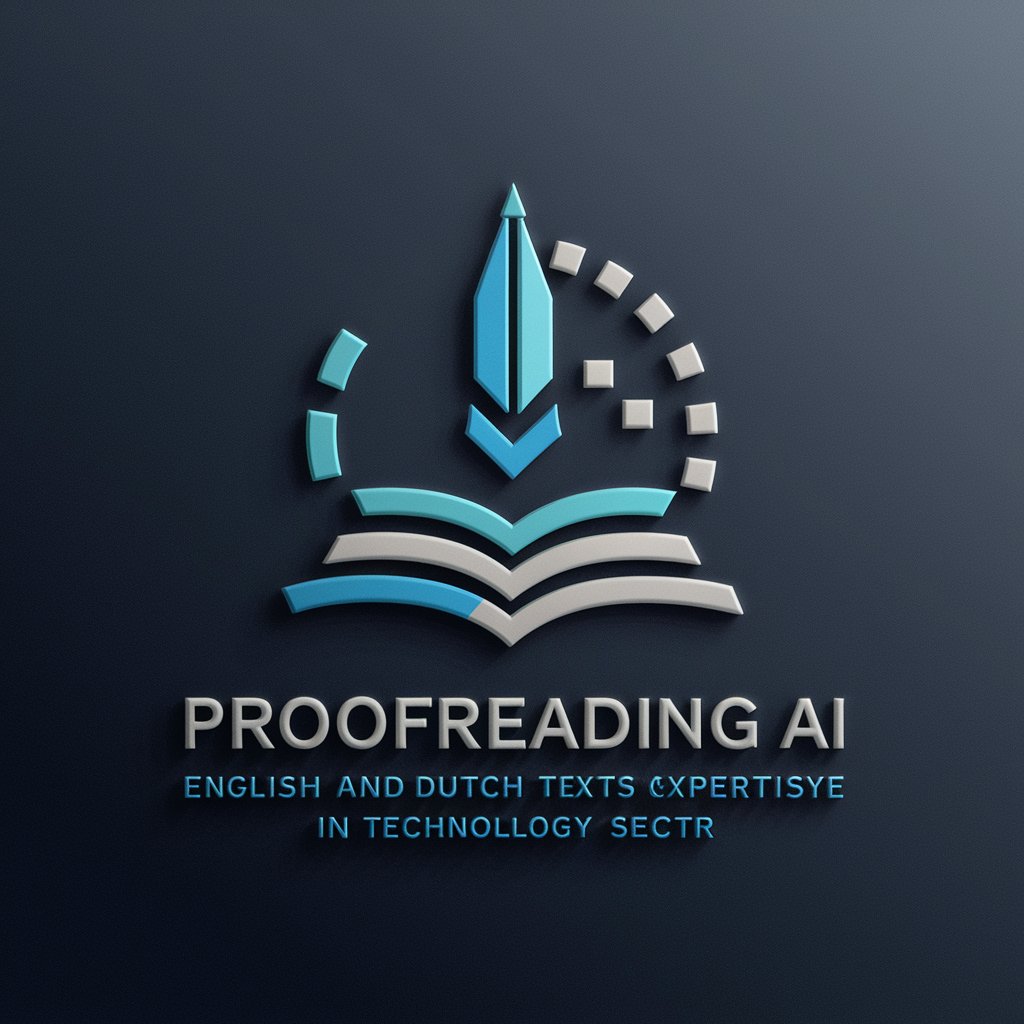GrammarGPT - grammar correction, English and Russian

Welcome! I'm here to perfect your grammar.
Empowering Writing with AI Precision
Correct the following English text:
Исправьте следующие ошибки в русском тексте:
Please refine this sentence for grammatical accuracy:
Пожалуйста, исправьте грамматические ошибки в этом предложении:
Get Embed Code
Overview of GrammarGPT
GrammarGPT is a specialized AI designed to assist users in enhancing the grammatical and orthographic accuracy of text written in both English and Russian. The core function of this GPT is to identify and correct a wide range of language errors, including but not limited to grammar, spelling, punctuation, and syntax, while maintaining the original context and intent of the message. For example, if a user submits a piece of text that contains complex sentence structures with subtle grammatical errors, GrammarGPT can refine the text to ensure clarity and correctness without altering the intended meaning. Powered by ChatGPT-4o。

Key Functions of GrammarGPT
Grammar and Spelling Corrections
Example
Input: 'He don't know where his book is.' Output: 'He doesn't know where his book is.'
Scenario
Useful in academic writing or professional emails where precision in language is crucial to convey clear and accurate information.
Syntax Adjustment
Example
Input: 'She was, because of the rain, late.' Output: 'She was late because of the rain.'
Scenario
Helpful for non-native speakers or writers who struggle with English or Russian syntax, ensuring their writing flows more naturally.
Punctuation Optimization
Example
Input: 'What are you doing tonight?' she asked him. Output: '"What are you doing tonight?" she asked him.'
Scenario
Assists in maintaining the stylistic integrity of dialogues in creative writing or in scripting for plays and films.
Target Users of GrammarGPT
Students
Students often need to write essays, reports, and dissertations that require high levels of grammatical accuracy. GrammarGPT can assist them by ensuring their submissions are free from grammatical errors, potentially improving their grades and academic standing.
Professionals
Professionals, especially those in fields like law, journalism, and academia, need to communicate clearly and correctly. GrammarGPT helps ensure that their written communication, from emails to official documents, is impeccable, reflecting their professionalism and attention to detail.
Non-native Speakers
Individuals who are not native speakers of English or Russian can use GrammarGPT to improve the quality of their written language. This tool supports them by correcting subtle language errors that might otherwise hinder their communication in personal, educational, or professional contexts.

How to Use GrammarGPT
Step 1
Visit yeschat.ai for a free trial without login, also no need for ChatGPT Plus.
Step 2
Choose the language you need assistance with, either English or Russian, from the language selection menu.
Step 3
Type or paste the text you want corrected in the input field.
Step 4
Press the 'Submit' button to receive instant grammatical corrections.
Step 5
Review the suggested corrections and apply them to your text as needed for improved clarity and accuracy.
Try other advanced and practical GPTs
Cocon et maillage
Harness AI to Cluster and Link Content

SalesGPT
Enhance your sales with AI.

PHP
AI-powered PHP assistant for developers

ベテランリライター(脚本)
Revise scripts with AI precision

Linux and DevOps Master
AI-powered Linux and DevOps tool

CashCow Autopilot Coloring
Bringing creativity to life with AI

Research Buddy
Your AI-powered Research Partner

Proofreader
Perfect Your Text with AI Precision

SheikhGPT
Bridging Faiths with AI

⭐️ Cocoa Twins® Trendy Undercut Prompt Pro ⭐️
Craft Your Style with AI Artistry

Today's News
AI-Powered Daily News Summaries

Odoo Dev Expert
Streamlining Odoo Development

Frequently Asked Questions About GrammarGPT
What languages does GrammarGPT support?
GrammarGPT supports two languages: English and Russian. It can correct text in either of these languages with high accuracy.
Can GrammarGPT handle complex sentences?
Yes, GrammarGPT is designed to handle complex sentence structures and can correct a wide range of grammatical errors, making it suitable for both simple and sophisticated texts.
Is GrammarGPT suitable for academic writing?
Absolutely, GrammarGPT excels in academic settings where precision and adherence to grammatical norms are crucial. It can be a valuable tool for students and researchers alike.
How does GrammarGPT ensure privacy?
GrammarGPT does not store or share any user inputs. Privacy and confidentiality of your data are maintained, making it safe for sensitive content.
What are some common errors GrammarGPT can fix?
GrammarGPT can fix a variety of errors including, but not limited to, punctuation, verb tenses, prepositions, and subject-verb agreement.
